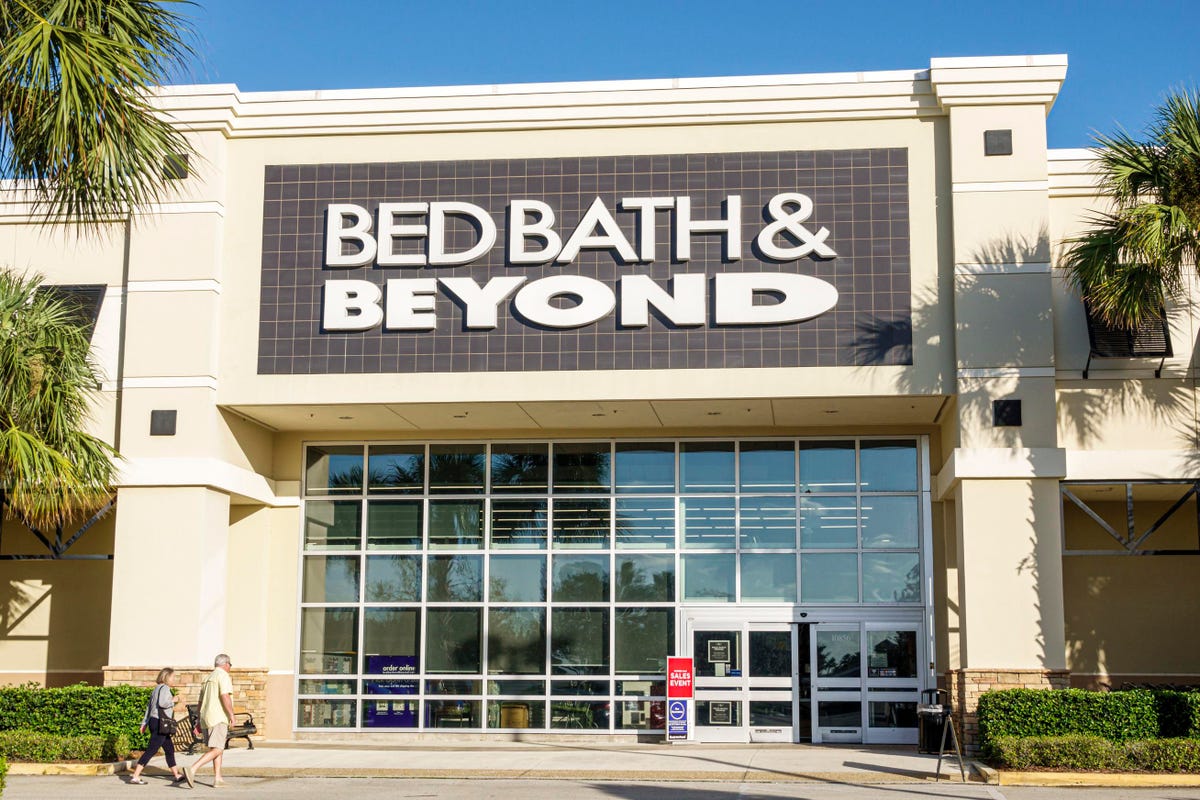As staff and employers navigate the return to normalcy, flexibility is one thing that is right here to … [+] keep post-pandemic.
Whether or not you’re a supervisor at an organization with 3,000 staff or three, one thing that leaders throughout industries have discovered up to now two years is that giving staff extra flexibility is essential to retention and recruiting of recent hires. The pandemic pressured the bulk (~70%) of the US workforce to adapt in a plethora of various methods to maintain everybody wholesome whereas nonetheless persevering with to work effectively. Corporations that beforehand had 0% of their staff working remotely had to determine learn how to seamlessly switch all operations to a 100% digital setting. Whereas clearly a ton of unhealthy issues got here from the pandemic, that’s to not say there weren’t learnings and classes found throughout the board.
The truth is that extra expertise in each a part of the nation, and the world, now has entry to higher alternatives due to the elevated normalization of distant work. Gone are the times the place you must stay in San Francisco to make a Bay Space wage. Distant work isn’t a groundbreaking idea, but nearly all of firms didn’t standardize remote-work till the pandemic. What was as soon as the exception has turn out to be the expectation. Expertise will work distant for you, or simply work for another person.
I see this as a win for staff. Employers know this and have needed to modify their compensation methods to accommodate for competitors. Excessive-demand roles, like IC software program engineers, have spurred extra aggressive salaries than talent units. Many will argue that this mix of low-supply and high-demand of expertise is cyclical and can bounce again to regular ranges. Others acknowledge that particular person flexibility and customized working situations are too extensively adopted to be relinquished simply. Working dad and mom can spend extra time with their youngsters when their commute consists of switching rooms; it seems you may have your cake and eat it with your loved ones. Within the 2021 State of Work study carried out by Owl Labs, 71% of staff need a hybrid or distant working fashion post-pandemic, and that “39% of employers are requiring staff to be within the workplace full-time post-pandemic, however solely 29% of staff need to be in an workplace.”
There’s at all times the flip facet of the coin; there are individuals who miss the in-person connection and escape from their residence life. In the same vein, it’s simpler to really feel burnt out once you’re residing and dealing in the identical room. The identical factor goes for decompression; staff can context swap from boss to guardian or companion after they have a commute. For some, separating work and life into completely different areas, or simply even the selection to resolve what’s greatest for them, is crucial. With a shift within the expertise market placing extra management within the palms of expertise, I feel quite a lot of firms are creating extra understanding for his or her staff’ lives outdoors of labor. The phrase “work-life stability” is outdated. Individuals don’t need to stability their work and life, they need to combine their work into their life in a method that maximizes their time with issues that convey them pleasure and allow them to really feel snug.
I’m at all times curious how firms react to international phenomena and the way large-scale challenges assist breed innovation in conceivable methods. Having been within the expertise and recruiting business for a yr, at a required 5 day-a-week in-office job, I’ve been keen to talk with firms about what they’ve discovered from their very own methods and new greatest practices for attracting and retaining expertise. Should you haven’t learn my earlier articles about expertise, I prefer to get on calls with people from completely different firms and ask inquiries to create an enormous pattern or census. Then, I summarize our name into a short paragraph with essentially the most attention-grabbing perception that I discovered. For this text, I used to be interested in how firms take into consideration the way forward for their work setting, given what number of had been pressured to change theirs so abruptly. Listed below are some questions I requested over the past two weeks on 30+ calls:
- Are firms that had been as soon as in-person planning on renewing their workplace area and bringing again people to the workplace?
- Has the hybrid mannequin of labor attracted an equal curiosity of each staff and employers?
- Have firms that had been at all times remote-first strengthened their beliefs in a digital workplace?
- What are a few of the challenges with having a distant firm vs. an in-person one?
- How have you ever been in a position to supply expertise from completely different areas resulting from distant work and the way has that helped your organization?
- How are firms combating Zoom fatigue?
- How have salaries been affected by folks working remotely in historically low price of residing locations?
- What do you envision occurring to work-environments within the subsequent three years because the pandemic continues to fade?
I had quite a lot of attention-grabbing discussions with completely different firms and positions on the above subjects. Right here’s essentially the most attention-grabbing tidbits that I discovered that I feel you’ll take pleasure in studying as nicely:
Heath Foist, Chief Human Resources Officer at Symplr
Working remotely goes to be regular for lots of people for the subsequent decade and past. One of many greatest challenges with distant work is digital fatigue. Sustaining a very good work-life stability is difficult when you may energy up and begin work at 7AM once you’re working from residence. We need to create a very good wholesome work stability that retains people engaged with that in thoughts. There needs to be flexibility with our work setting, however seeing one another in actual life remains to be vital; there isn’t a substitute for nose to nose dialog and connection.
Since 2019, most of our crew tradition has developed to be distant first. And we nonetheless are remote-first, however now we try so as to add in-person choices for our crew of 32 folks. One of many greatest challenges with distant work is ensuring the precise persons are getting the precise info that they want, whereas concurrently working onerous to ensure the crew feels supported and that they’re really part of the crew and that work is not permeating their private lives.
Lisa D’Acquisto, VP of HR at Ascent Funding
We’re a flexible-first firm. Our definition of hybrid is now extra like a 50% in individual and 50% distant. Our staff have confirmed they’re productive and work nicely in a distant setting, so we’re not in a rush to get again within the workplace. Hybrid goes to be our new norm. Staff are going to demand flexibility going ahead. If there’s a recession, staff are joyful to have a job, and they’ll undoubtedly come into the workplace, so it’s undoubtedly cyclical. I do know a number of individuals who have moved into rural communities as a result of they’ll work remotely and nonetheless have the wage that comes with having a job in a big metropolis.
We had been historically an in-person or in-the-field firm after which the pandemic hit and obtained us pondering otherwise. All of our skilled workers needed to work at home; we had customer-facing people that also needed to are available or people who couldn’t do their job from residence. As we separated from AT&T, we developed a digital first tradition. Not solely due to the pandemic, however, we determined we’re going distant regardless. We didn’t need to return to the standard mannequin. We proved we are able to work from wherever. Through the earlier phases of the pandemic, our name heart staff needed to come in-person, however we partnered with our unions to create a work at home mannequin for our name heart brokers who can now work at home in the event that they select.
Avril Eklund, CPP, CFE, Head of Global Workplace (Physical) Security/ Interim Head of Global Workplace Experience at GitHub
We’ve got been a distant first firm for 25 years. We’ve had workplaces and we nonetheless do, however we all know that flexibility is what persons are actually in search of. When the pandemic hit, we weren’t actually affected. We had been in a extremely good area. We’ve been doing this. To assist create and maintain a way of group in our firm, which you can’t actually recover from Zoom, we’re serious about our workplaces as locations for our staff. We would like it to be very intentional and maximize the manufacturing and connection that you simply get once you’re assembly in actual life.
Jeff Harper, Chief People Officer at HashiCorp
We’ve got at all times been a distant first firm. We had the benefit of being a distant firm earlier than the pandemic. We had lots of people coming to us asking for recommendation about working in a distant setting. So, we put collectively our greatest practices and made it public. Our greatest problem with a distant workforce is “how can we come collectively?”. There’s a vital aspect of in-person communication that may’t be replicated as nicely over screens. We acknowledge how vital social cloth and connectivity is to how we create tradition and relationships throughout the corporate. Now, we’re leaning into alternatives for folks to attach and collect in actual life much more.
Vanessa Warlow, People Operations at January
We had been totally in-office earlier than the pandemic. Then, we went totally distant and it really elevated our productiveness. We prioritized and targeted on an asynchronous work mannequin. We’ve got now shifted to a hybrid mannequin. Our extra junior-mid degree people have been going into the workplace 1-2 instances every week and senior degree staff are largely totally distant. Most of our crew likes to be within the workplace, so I feel hybrid goes to be the factor that sticks round.
Karishma Patel Buford, CPO at Spring Health
There’s a number of challenges that include distant work. We are likely to get extra issues achieved in individual. It’s an actual subject. We’re additionally not meant as people to be on video all day. Persons are fatigued by video calls and sustaining the boundaries from work and residential. I feel finally as a society we’re going again to again within the workplace. Persons are going to overlook the in-person connection and effectivity that comes with being in individual.
Amy Kim, CEO of Jugo
We had been all pressured to go residence with simply the instruments we had and we needed to pivot our enterprise as a result of we had been doing this in-person. We determined to package deal this up right into a software program and do our providers nearly. We proved we will be productive in a distant setting. We’re even seeing an enormous enhance in attraction and retention typically.
Nick Charles Weatherhead, CEO of The Supreme Agency
For youthful staff, it’s so important to absorb info from management in an in-person setting. I might quite somebody elevate their hand and ask 1,000 questions than endure in silence. A couple of years in the past I wasn’t open to distant work. I used to be a high performer at a PR agency for 3 years, they usually solely gave me two distant days 1 / 4. I can actually work in a rest room, a citadel, wherever as a PR individual. The pandemic has pressured folks to get smarter and conventional firms are battling this. You’re seeing quite a lot of this with large tech and massive banking. I can now stay in Joshua Tree and work for a corporation in NYC. Should you’re an organization who mentioned that was okay earlier than and are actually altering your coverage on that, it is a actually sticky and complicated scenario to be in.
Mark Debus, MSW, LCSW, Manager of Behavioral Health Services at Sedgwick
We try to do our greatest for enterprise and for our colleagues. Earlier than the pandemic, we had workplaces all around the world. I labored in Chicago with a number of hundred different colleagues. There have been some distant and hybrid staff pre-pandemic. So, we had been already used to it in some capability. In a single day, largely everybody shifted to working from residence. I haven’t been again to the workplace since March 2020. We downsized our actual property after we realized we had been productive, if no more productive, at residence. Lots of people are fairly snug with working from residence. I’ve obtained 10 hours of my week with no commute again to me.
We’ve been distant for 5 years, the pandemic took a toll on us extra emotionally quite than operationally. Communication is the most important problem when working remotely. In an workplace, we take quite a lot of issues without any consideration. You may learn folks higher in-person. With distant work, there may be a lot extra studying and writing. Not everybody likes that type of communication and it’s not the perfect type of communication for every thing, folks get fatigued. There are fewer items of communication due to that fatigue. Because the chief of the group, it’s additionally robust to grasp when and the place persons are speaking. It makes speaking extra of a giant factor and now we have to be extra considerate about it.
Sean Heiney, Founder of SignalWire
There may be worth in non-explicit communication that occurs in simply present in the identical area. With out speaking to somebody I can inform what their temper is, I can inform when you’re head is down, they’re busy or if somebody is having a foul day and to remain away. Non-verbal communication would not occur as simply with distant work. Zoom fatigue is a expertise downside. Should you tried VR within the early days, you most likely thought it sucked. VR isn’t what sucked, the body fee and backbone is what sucked. It’s the identical factor in Zoom. It’s a mixture of expertise and usefulness. Zoom wasn’t meant to be lived in like it’s now, it was meant to be a spot for conferences. So, that’s what we want to assist change with the expertise we’re constructing.
Lexi Jones, Sr. VP of People at SecureLink
Pre-pandemic, we had been an on a regular basis within the workplace tradition; working distant was an exception. We had two workplaces, one in Austin and one in Costa Rica. We had been reaching a capability subject in our Austin workplace and we had been even starting to implement a desk-sharing coverage. We had been uniquely positioned, being a cyber-security firm, to securely take our work to our properties after we needed to. Expertise lives in all places is what we’ve discovered within the final two years. Plenty of tipping factors have come round for us to make the change to being a distant pleasant firm. We acquired an organization that had a base of distant staff already and Austin’s housing market has turn out to be so unaffordable, so, in 2021 we began recruiting expertise from in every single place.
Courtney Bardo, Director, Talent Management at Motus
We had been totally in-person pre-pandemic however culturally we had been in an attention-grabbing place. Our tradition was by no means about being in an workplace; it was concerning the outcomes. It was at all times concerning the process at hand and a standard purpose. Going distant wasn’t a giant shift in that regard. It wasn’t tough for Motus. We made positive everybody was snug with what was occurring and met the person the place the person wanted to be met. We are actually a fully-remote workforce and we are going to by no means return to an in-person required setting now that we’ve seen how efficient we will be.
Jacob Wallenberg, Head of People Operations at Ramp
When the pandemic hit, we had been a small crew of 20 folks and largely everybody was in NYC. We had been very eager to construct a product and engineering hub in NYC, which is widespread on the West coast however not a lot in NYC. Through the center of the pandemic, we observed our workplace wasn’t getting used as a lot. As we grew the crew to 120 folks within the final 2+ years, we realized we are able to rent from wherever as a result of we weren’t actually assembly within the workplace and we had been nonetheless rising and scaling anyhow. I feel hybrid work works very nicely as a result of as an organization, we grew up in the course of the pandemic and have seen it’s an efficient work setting in a number of methods.
Lisa Fernandez, VP of People at Tala
The pandemic introduced forth quite a lot of unhealthy issues but in addition quite a lot of good alternatives. This nation has turn out to be distant first or hybrid. We’re all now competing for a similar expertise with so many distant first firms. Extra importantly, we’re actually leaning in to creating positive our crew has a life outdoors of labor. We’re repeatedly working to enhance our staff’ lives. We’ve got labored actually onerous to make sure that the dearth of human connection in a digital setting is ready to be bridged.
Brian Carrico, Co-founder at The Guild
We had a really start-up-like workplace, assume ping-pong tables, in a warehouse in Austin. We had everybody who was interacting with prospects in a single room. When the pandemic hit, we sublet our workplace and went 100% distant. We deal with staff how they need to be handled. If you would like the choice to return into the workplace, we need to give that choice to you. The answer is to present folks choices and deal with them like adults. We’re being actually clear with our staff; we’re asking for suggestions continually.
Judy Ransford, CEO of Hickory Farm
We’re getting suggestions from folks particularly roles that they aren’t seeing any advantages from coming into the workplace. There’s a related minority that’s asking ‘why am I coming into the workplace?’ None of us actually know what’s greatest since that is so new to us. Our imaginative and prescient is, let’s strive in-person and distant work for 60 days after which we’ll have these conversations after we each see the way it works. We must be versatile as a result of there’s no person in my firm who cannot exit and receives a commission extra elsewhere due to how insane the market is for expertise.
We had been a crew of 150 staff in the summertime of 2019. Each startup that was in hyper-growth throughout that point was in individual. When the pandemic hit, we went residence like everybody else. In early 2020, we’d grown to over 400 staff. Nonetheless, everybody was within the workplace. We obtained into a pair large tasks and realized that we will be actually productive when we’re not within the workplace. We discovered that persons are productive if no more productive whereas distant. In June 2020, we made the choice to make distant work a part of our long run imaginative and prescient.
Brandon Sammut, Chief People Officer at Zapier
We turned so international so early as an organization, so we’ve at all times labored asynchronously. You are able to do a gathering if you have to. It’s a instrument. We’ve got quite a lot of different instruments to speak and collaborate. It permits us to work across the clock. It’s neat to see people reap the benefits of our flexibility that we provide at Zapier. We’ve got somebody who has been RVing throughout America. We have deliberately made intentional selections to not make a set work week for folks and conditions like that.
Chia-Lin Simmons, CEO of LogicMark
We had been distant pre-pandemic, throughout the US and the globe. We had been a world setting and in search of expertise the place they stay. Our future engineers and PMs are Millennials + Gen Z. As we seemed on the developments, youthful generations actually worth the flexibleness of the place and after they work. Why are we making an attempt to jam them into a standard work setting? Allow us to take a look at what folks worth of their work life now and adapt as an organization to regulate our work setting to suit a workforce that’s excited by that flexibility. Our present work setting was by no means versatile sufficient for folks, however the pandemic has now taught us that we are able to now be each dad and mom and be productive staff.
Betsy Leatherman, Global President, Consulting Services at Leadership Circle
Each chief I am speaking to is pondering of every thing by way of giving their staff flexibility. On the identical time, they need staff to keep up their private boundaries. Individuals had been working tremendous later or tremendous early in the course of the pandemic. They obtained burnt out far too usually. I used to be not too long ago in some intense technique classes on a enterprise journey and by the point I used to be residence a number of hours later, I had processed what occurred earlier than I obtained residence. Often, once I get off a Zoom at residence, I haven’t got time to essentially transition from technique mode to mother mode.
Jenn Saldarelli, Vice President, Executive Recruiter at Chaloner
The expertise market may be very robust however we’re beginning to see a small softening. Hiring firms had been bending over backwards for candidates earlier than, however now we’re seeing hiring organizations being strict with wage and sign-ons or relocation. Corporations might want to take note of how they create a tradition. It makes it tougher to create a tradition with relationships when persons are distant since staff lose their stickiness.
Rony Kort, VP of People at Greycroft
Pre-pandemic, we had been two separate workplaces based mostly in LA and NYC. The pandemic introduced everybody collectively to really feel like one firm since we had been all distant and in it collectively. Now, we’re hybrid and really feel a lot nearer throughout the group. To proceed to construct on a way of group, we encourage in-person conferences, onboarding at HQ, or visiting an workplace within the first month or two. We’re getting the entire crew twice collectively a yr to create a greater connection between us all.
Alex Ewing, COO & GC at LiquiGlide
Everybody however 5 of us are in a lab and distant work was not a factor we did till we had been pressured to. We determined to return full-time and we’re large believers of in-person work. It has turn out to be tougher to rent somebody who has skilled distant work to return be a part of us in individual, however on the identical time, it has turn out to be method simpler to interview folks remotely.
Dr. David Rock, CEO & Neuroscientist at NeuroLeadership Institute
We’ve been researching for a greater decade about what motivates folks and have discovered rather a lot it comes all the way down to notion of selection, company, and management. Corporations underestimate the attitude of management. The pandemic gave folks extra management of the place they might work, what they wore and so on. Should you take management away from folks, they aren’t very joyful.
Christie Callahan, COO at RxRevu
There are some locations the place distant work is rarely going to be an choice as a result of there’s work the place you bodily must do one thing. Nevertheless, there’s a lot worth in with the ability to recruit nationally and capitalize on pockets of information which might be so particular to what you are constructing. I don’t know if we’re ever gonna get again to an in individual setting and firms must get snug with hybrid work. Persons are hungry for flexibility. I’ve the chance to take my child to the physician and I can take part in my group once I need to now. Shifting ahead the burden shall be on firms to present folks extra flexibility.
Margaret Chadwick, Chief Human Resources Officer at Wolfspeed
Nothing modified for folks in-person. The productiveness we noticed from people who had been working at residence was the identical because it was in-office. We noticed this as a strategy to innovate. Individuals can now handle their lives somewhat bit higher than they’ve earlier than. We gathered suggestions from our staff about whether or not they preferred distant work or hybrid. We obtained quite a lot of suggestions from people they usually need flexibility. All of that may work. You are taking what about your job and the way a lot you have to be current with others and your private life and work-style. Take what you’ve discovered from working within the workplace and now having labored at residence. Work the place it really works. We’ve got a tradition of listening to our staff.
Melissa Dexter, CPO at Uprise Health
We’ve stayed distant now as a result of the most important barrier I’ve seen is hiring expertise inside the previous 2 years as folks’s values have modified. We’re taking our actual property and letting our leases run out and investing that into the corporate and worker expertise. Should you informed me 3 years in the past, you may run a folks operation remotely, I might have mentioned you’re loopy. Should you make folks return to the workplace, they’ll stop. We’ve got to place our personal staff’ psychological well being first.
Johan de Jong, VP of HR for Verint
We’re 45% distant and 55% workplace. We had everybody go residence in March of 2020 and we by no means skipped a beat. We’ve got stored it that method. Staff would ask about after they can be required to return to the workplace and we requested our staff globally what they wished in a survey. Our staff need flexibility. We aren’t going to open workplaces and require them to return, but when they need to, they’ll go to an workplace.
These conversations have been edited and condensed for readability. Particular due to Kathleen Walsh, Jamie Geller and Sasha Fyffe for being the perfect helpers ever.






